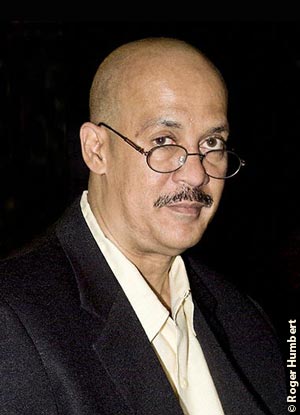| It was bound to be a challenging evening for both performers and listeners. To celebrate and commemorate Glenn Gould’s music, Cuban-born pianists David Virelles and Hilario Duran were commissioned to create and perform works inspired by Glenn Gould. Birds of a feather, musicians of an instrument; even from the vantage point of their Cuban origins and training, these pianists could not but have been influenced by Gould’s monumental legacy. The task of using their own musical voices while nonetheless transmitting something clearly Gouldian to the audience would be a precariously achieved balance throughout the evening.
Broadcasting live on CBC radio 2 the host, Andrew Craig, interspersed the performance with commentary on the performers and questions to Virelles and Duran about their thoughts on Gould, their impact on each other as the younger and elder generation of Cuban-Canadian pianists, and the particular inspiration for each piece. The atmosphere was scholarly, the crowd tipped towards the generation that might have heard Gould in his prime. It felt strange to await a Cuban music concert with so complete a certainty that there would be no dancing.
Virelles performed first with his quintet and the classical Penderecki String Quartet. The opening piece, “Relativity,” was (most appropriately) inspired by an Escher print of the same name. Beginning with a rubato intro on solo piano, it built towards intense and intricate improvisations that remained primarily on a cool, modern jazz plane. The music reflected its name and inspiration admirably, in the way the time signature cycled through a series of seemingly complex subdivisions, that all wound up being pieces of a deceptively simple whole. Like an Escher print, like a Bach Fugue, the piece revealed more detailed layers the more closely it was examined, but remained harmonious and uncluttered in effect. My one quarrel with it, as with a number of Virelles’ compositions that evening, was in the use of the strings. Only occasionally did they seem to be contributing an essential sound to the ensemble, and rarely, if ever, did one sense that he had written their parts with a particular desire to hear the sounds that strings alone can produce. They seemed added on, somehow, without being fully integrated into the writing. His quintet was, in itself, a smooth and sensitive collective instrument, responding in all its parts to subtle and unsubtle sounds that each member contributed. Devon Henderson on bass stood out in the finesse of his double-stop intonation, a rarity and a pleasure to hear. Virelles’ command of the piano was indeed impressive, crunchy and unexpected and thoughtful in approach.
|



